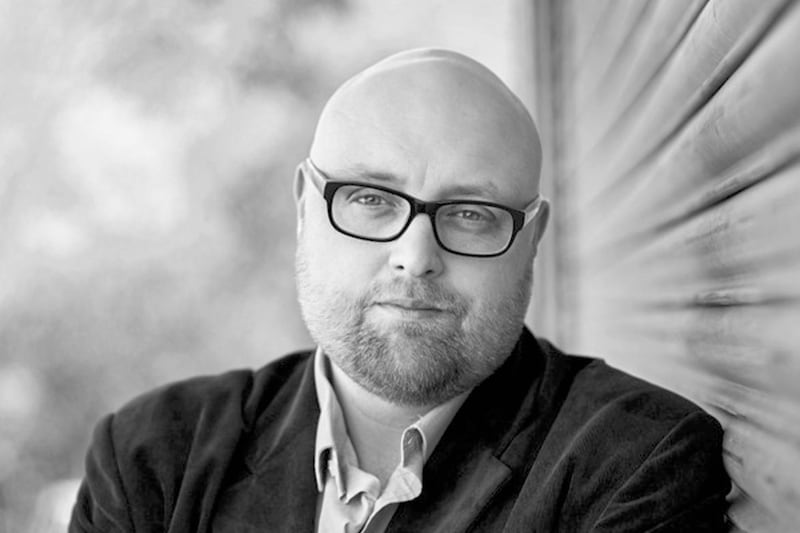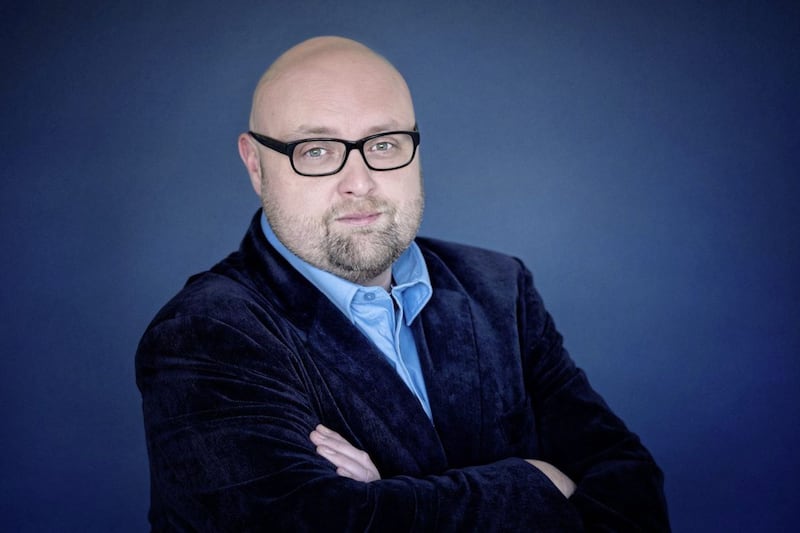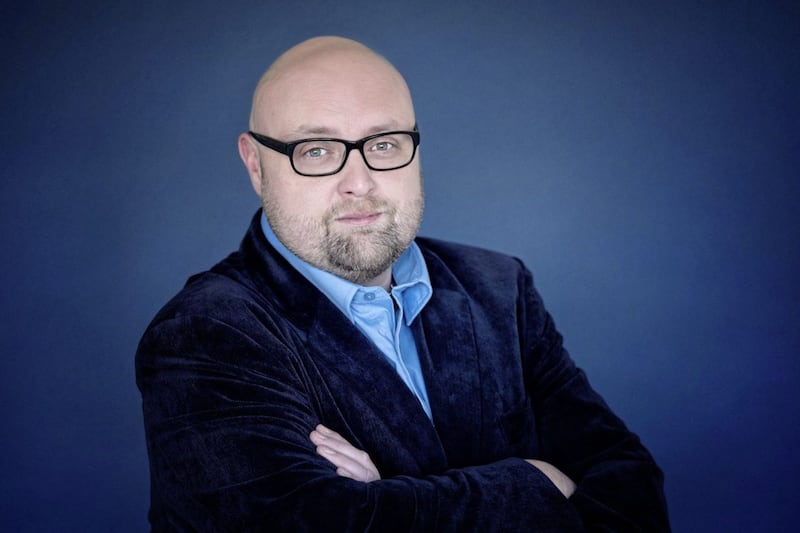IT'S a no-no to have two projects with the same title out on the market at the same time.
But with luck few will notice Steve Cavanagh's new novel Twisted comes almost simultaneous to the stage sequel to Oliver! (based on Dickens's classic Oliver Twist), which is also called, er, Twisted.
"I didn't know that at all," Cavanagh tells me. "But does it really matter? I don't think a stage play will interfere with the book so I wouldn't worry too much."
Twisted is the Lisburn man's fifth book and the first not to feature con-artist-turned New York trial lawyer Eddie Flynn (though he gets a passing mention).
Flynn was the focus of Cavanagh's 'breakthrough' novel last year, Thirteen, which earned rave reviews and soar-away sales. Its "hook", as Cavanagh puts it, is a serial killer who is serving on a jury.
"That seemed to have quite intrigued readers. The book has done very well in the UK and Ireland and is coming out in America in August," he says.
Full-time lawyer by day, author by night, Cavanagh has made his mark in the crowded crime genre, winning the coveted Gold Dagger award last October for his previous Flynn book The Liar, published in 2017.
He keeps it to one novel a year, and admits the idea for Twisted actually came from his wife, Tracy.
"We were talking about the notion of identity and people who conceal their identity and we mentioned Banksy [the anonymous pop-up street artist]. Nobody knows who he is. So what would happen if he died. How would people know it is him? That was the core of it."
The twists come early. It's a crime writer writing about a crime writer who insists on his anonymity and has gone to great lengths to protect it. A crime writer who is also a criminal. In an early development we find how a first partner died and later a weak-kneed, apparently sideline figure suddenly emerges as the protaganist.
At times it has the pace of Carl Hiassen, with shades of Ken Follett and more than a touch of the John Grishams. In fact throughout Twisted Cavanagh regularly references a whole host of other mystery, thriller and crime-fiction authors, also including Lee Child, Stephen King and Michael Connelly. So where does he put himself in the pantheon?
"I don't put myself anywhere," he says. "I just try to get a book out every year and try to make it the best book I can write. I put all the names in to give this book the flavour of the real world, although people like Child and Connelly are among my own favourites."
There is also a little 'in-joke' in the name of the mystery author who has managed to keep his identity secret under the pseudonym of JT LeBeau – the JT and 'Le' a direct reference to JT LeRoy, a literary identity created in the 1990s by American writer Laura Albert.
Cavanagh, it turns out, is this writer's own pseudonym, his late mother Bridie's maiden name. His real name is Mearns and it was his mum's passing that inspired him to give writing a final attempt. The result was his debut, The Cross.
Like it, Twisted has many of the elements of the better-known crime-writing fraternity. Short stacatto sentences, terse and tense dialogue and chapters with endings like the Saturday cinema serials of old. But Cavanagh is adamant there is no formula behind the crime novel.
"That's a general misconception, I think, that comes from people thinking about the likes of Agatha Christie. There is no set structure or a formula other than the central mystery or crime that needs to be solved," he says.
"Of course you play on the reader's expectations, and identity is always something which can be manipulated."
The father-of-two currently practices civil rights legislation by day, comes home to the family and then, when they have gone to bed, gets down to his writing. How does he manage it?
"With great difficulty," he admits. "It's a balancing act, obviously. They will all be in bed and I will be at the kitchen table, often tearing my hair out trying to get something to work, until my head hits the laptop."
He is already working on the next novel, which will again feature Flynn. And he does not allow the 'day job' to creep into his night-time fiction creations, at least consciously, nor does he see one as a corollary or antidote to the other.
"I like both jobs. I don't think one necessarily relates to the other, although books involve storytelling – to be a good lawyer you have to be a good storyteller."
Now 42, Cavanagh also made his mark in legal terms; in 2010 he won the largest award of damages for race discrimination in Northern Ireland legal history when he represented a factory worker.
So he has no intention, at least for the moment, of giving up his work as a lawyer to write full time.
"I want to keep both rolling for as long as I can," he says.
Almost in passing, I mention similarities with the famous literary lawyer John Mortimer, who created the legendary Rumpole of the Bailey.
"Oh, I love John Mortimer. I would never put myself in his class," he says.
Since we are name-dropping so much, I ask him to name the crime authors and books that have most influenced him. He cites Patricia Highsmith's The Talented Mr Ripley, Stephen King's Misery and John D MacDonald's The Executioners.
Nowadays successful crime writers are laughing all the way to the bank their characters have just robbed. There's a nod towards the phenomenon in Twisted where a fake news story – this is the Trump era, after all – contains the sentence, "Sales of mystery, thriller and crime novels frequently eclipse that of literary fiction".
Cavanagh says: "Outside of children's and young adult fiction, that has been the case for a long time now."
:: Twisted by Steve Cavanagh is published by Orion and available in bookshops and online now.







